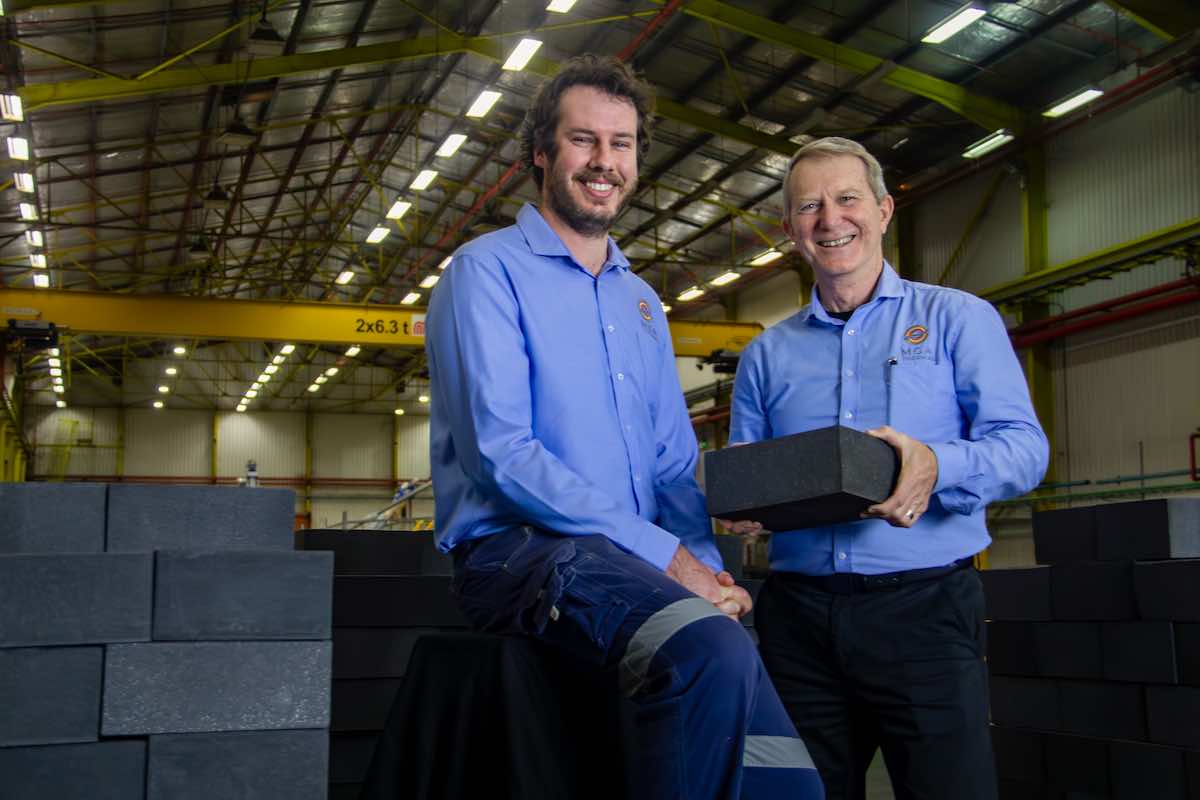Green steam: US oil giant taps Australian thermal storage start-up for “real-world” trial

- by Admin
- December 16, 2024

New South Wales energy storage hopeful MGA Thermal has been tapped by US oil giant Chevron to collaborate on a real-world, 5 megawatt-hour (MWh) trial of the “clean steam” technology developed over a decade at the University of Newcastle.
The deal, which will start with a front end engineering and design (FEED) study, is being hailed as a major milestone for MGA Thermal, marking the first major customer win for the company as it works towards commercialisation of its industrial heat and power technology.
MGA Thermal’s technology uses renewable energy to generate process-grade steam on demand, enabling a 24/7 supply of industrial heat at temperatures ranging from 150°C to over 550°C.
The MGA part of the company’s name stands for miscibility gap alloys, a material invented and perfected by cofounders Erich Kisi and Alexander Post at Uni Newcastle.
A miscibility gap is an area in a mixture or alloy where the different components don’t mix well and instead separate into two or more regions with different compositions.
It works by stacking the blocks of MGA into insulated tanks to store huge amounts of energy. This effectively firms variable renewable generation without the need for batteries, aligning perfectly with the growing demand for sustainable heat and energy solutions in heavy industries.
MGA Thermal says the first phase of the collaboration with Chevron will be the FEED study, to give the oil major the chance to comprehensively evaluate MGA’s thermal energy storage technology.
After that, Chevron will assess the findings and consider the potential for a second phase, which could involve broader technology rollout, including a 5MWh trial unit designed for a Chevron site.
MGA says the deal came about following the company’s recent introduction of an automated manufacturing line and tunnel kiln, which will increase production capacity 20-fold by 2026.
“This study with Chevron represents a significant opportunity to demonstrate the real-world impact of our technology,” said Post, who is CTO of MGA Thermal.
“We’re confident that our clean steam solution will play a crucial role in helping industry leaders meet their ambitious decarbonisation goals.”
Luc Huyse, manager of operations and facilities at Chevron Innovation, says the collaboration is part of the oil major’s efforts to decarbonise.
“At Chevron, we’re committed to delivering affordable, reliable, and ever-cleaner energy,” Huyse said in a statement.
“Our collaboration with MGA Thermal is just one example of the forward-thinking required to deliver on our strategy to reduce the carbon intensity of our operations and advance new solutions for major industries.”
The trial with Chevron comes just over a year after MGA Thermal was forced to temporarily suspend operations at a pilot plant in Tomago in New South Wales, followed a “dangerous heat build-up” during commissioning of a $3 million, 5 megawatt hour (MWh) facility.
The incident at the pilot – intended to charge and discharge in the form of steam at up to 500kW for 10 hours and operate at temperatures of 400°C to 700°C – was chalked up to “a valuable learning opportunity.”
“It is a reminder that we are working on cutting-edge technology, innovating new large-scale energy storage, and the importance of in-house trials,” a company spokesperson said at the time.
“The learnings will help accelerate the development of our Thermal Energy Storage (TES) system, and MGA Thermal remains committed to moving our company forward, with investor support in place.
“The market need for industrial decarbonisation solutions and long-term energy storage solutions for solar, wind and other renewable energy sources remains evident and significant. Our MGA technology is a crucial piece of that puzzle.”
MGA Thermal secured $8 million in investment in 2021, led by CSIRO’s venture fund Main Sequence, and $1.27 million from the Australian Renewable Energy Agency (ARENA) last year.
In August this year, a further $8.25 million was raised towards completing MGA’s first factory production line in Newcastle to produce the MGA blocks.
Another fundraising round in April secured $5.7 million in funding from Main Sequence, Melt Ventures and new investor Jekara, taking total funding to $28.8 million, including a grant from Shell in 2023.
The Latest News
-
December 23, 2024Aussies complete series clean sweep against New Zealand
-
December 23, 2024Annabel Sutherland’s sizzling summer continues as Australia ease to win over New Zealand
-
December 23, 2024BREAKING: Aussie grand slam champ accepts anti-doping ban
-
December 23, 2024Kyrgios return ‘super exciting’ for Australian tennis says Alex de Minaur
-
December 23, 2024‘Got some good bants’: Hilarious stump mic warning as Konstas plots secret Bumrah counter




